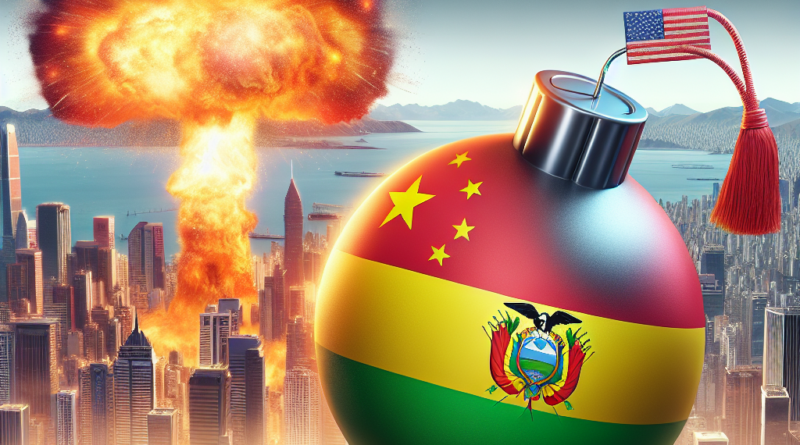An economic bomb is about to explode in Bolivia: China holds the detonator
The Economic Crisis in Bolivia and the Chinese Influence
Bolivia is currently facing one of the worst economic and financial crises in its history.
The GDP growth is at its lowest point in the last twenty years, compounded by economic recession, a payment crisis, rampant inflation, and high unemployment rates.
The Bolivian Central Bank is running low on foreign currency, especially US dollars, which are crucial for financial stability and market volatility control.
Recent energy production scandals, combined with a shortage of natural gas and electricity in remote areas for months on end, have exacerbated the severity of the situation.
But that’s not all.
Bolivia is now becoming the playground in the ongoing US-China power struggle.
Relations between La Paz and Washington have recently soured under the socialist government.
Consequently, China has swiftly moved in, seizing yet another opportunity to increase its influence in South America.
China’s Role in Bolivia
In response to Bolivia’s diminishing dollar reserves, China has been providing increasing amounts of yuan to the country.
La Paz can now utilize Chinese currency for commercial payments, initiating a de-dollarization process in trade and mitigating some of the effects of its economic crisis.
Currently, around 10% of Bolivian trade is conducted in yuan.
Through initiatives like the China-CELAC Forum, Bolivia has grown into a closer partner for China, allowing Beijing to extend its power into a region previously dominated by the United States.
High-level talks between Chinese Foreign Minister Wang Yi and Bolivian Foreign Minister Celinda Sosa Lunda have focused on potential Bolivian entry into the BRICS bloc and discussed temporary infrastructure investments under the Belt and Road Initiative.
With the worsening economic and financial hardships, China has provided new loans and investments to the Bolivian government.
Most notably, a $1.4 billion agreement has been signed for Chinese state-owned companies to extract Bolivian lithium, given that Bolivia holds the world’s largest lithium reserves.
Furthermore, a $350 million loan from the Export-Import Bank of China has enabled Bolivia to construct a zinc refining plant, a key export for the country.
Despite production slowdowns and logistical issues with energy exports, Chinese support is aiding La Paz in addressing the economic crisis.
In light of these loans and investments, China has become Bolivia’s primary source of foreign credit, although it still represents a small portion of its total foreign debt.
Bolivian yuan reserves are also increasing, both nominally and as a portion of total foreign currency reserves, with the Chinese currency being the fastest-growing in the Bolivian Central Bank’s foreign reserves.
The timely support from China is likely to push Bolivia towards an alternative regional order, where left-leaning South American governments rely on China rather than the United States for assistance and partnerships.
President Luis Arce has emphasized the importance of this shift, heralding it as a step towards a fairer and more just world.




